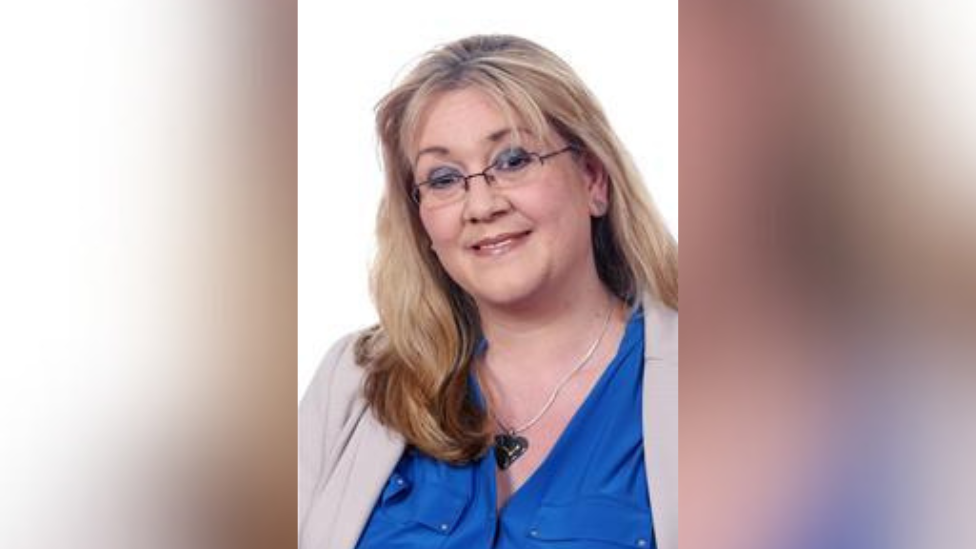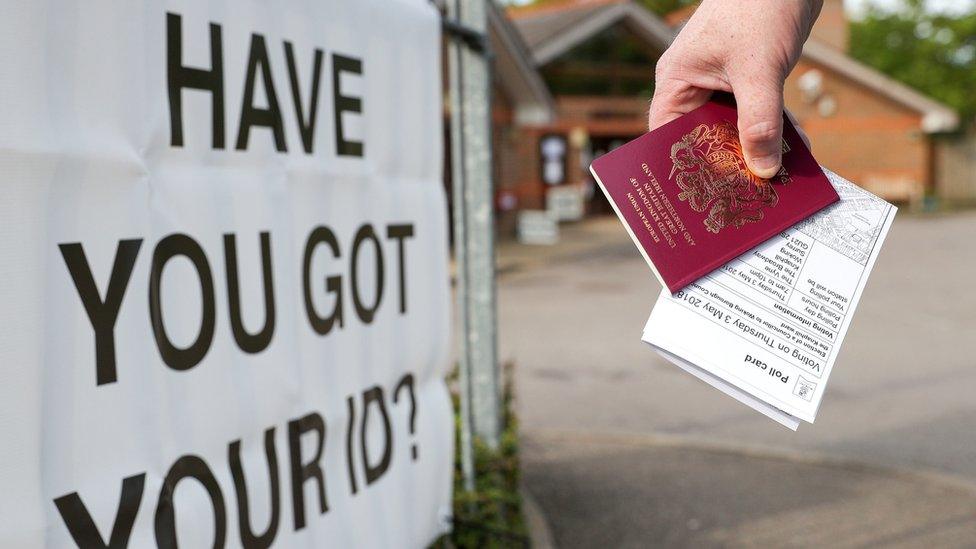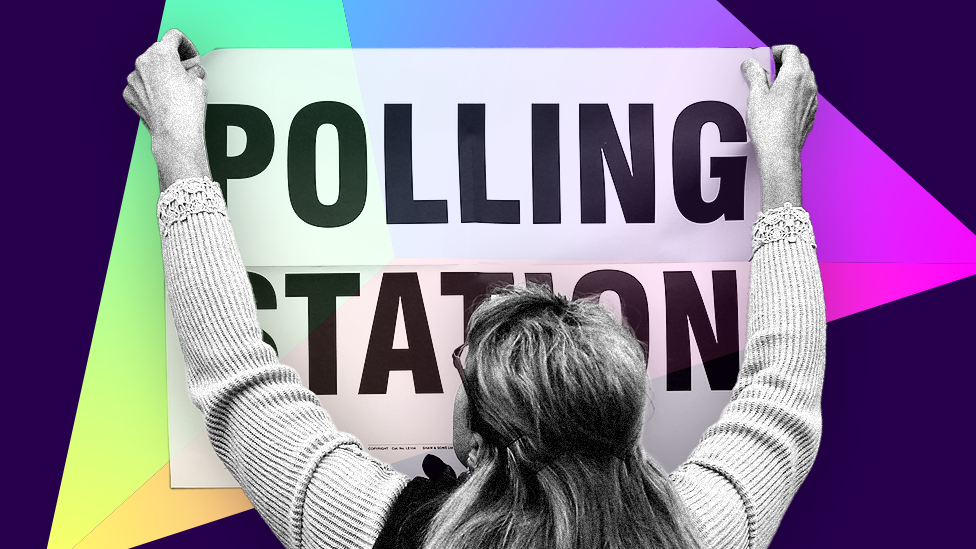Peterborough councillor unable to vote in election after ID problems
- Published

Julie Stevenson has since been asked for additional proof of identification before she can be issued a certificate to vote
An elected councillor is not yet able to vote in the 2 May local elections.
Julie Stevenson, an Independent on Peterborough City Council, said she was having to apply for a government voter authority certificate because she had no alternative photo identification.
She said she faced delays after changing her name and has been asked for additional proof of identification.
The government said it introduced the requirement to "strengthen the integrity of the electoral system".
The requirement to bring photo ID to polling stations was first introduced last year.
Elections are being held for 23 seats next month, external - about a third of the 60 seats on the city council.
Ms Stevenson, who is a ward member for Orton Waterville and whose own seat is not up for election this year, used an expired passport which had her previous name on it as she had not updated the electoral register after getting married.
She has since been asked for additional proof of identification before she can be issued with a certificate to vote next month.
"The things they're asking for, I don't have," she told the Local Democracy Reporting Service. "It's amazing how much not driving and not having a passport makes life difficult."
Ms Stevenson added that she also does not have a job outside the council, does not collect welfare benefits, and her household utility bills are sent to her husband.
This meant she had little proof of identification that was accepted by the government.
"It's a bit of a palaver when they've got my national insurance number and I'm already a councillor," she said.
"My point is that I half feel like giving up.
"I will get it sorted but it'll be due to my further effort."

The requirement to bring photo ID to polling stations was first introduced last year.
The effect of requiring voter ID in elections has been monitored by the Electoral Commission.
In a report on last year's local elections it said: "Some people found it harder than others to show accepted voter ID, including disabled people and the unemployed."
About 3% of people who said they did not vote listed not having ID as the reason, the commission said.
In Peterborough, less than half of one percent of people who reported to polling stations were turned away because they did not have a valid form of ID and did not return.
About 200 were turned away and later returned with valid ID.
The government said it introduced the requirement to "strengthen the integrity of the electoral system and ensure that elections remain secure, fair, modern and transparent".
In a response, external to the Electoral Commission's report, external, it said it would "continue to work with the electoral community, national and local civil society organisations, and the media to raise awareness of the support that is available for disabled voters".

Follow East of England news on Facebook, external, Instagram, external and X, external. Got a story? Email eastofenglandnews@bbc.co.uk, external or WhatsApp 0800 169 1830
- Published13 September 2023

- Published4 July 2024
